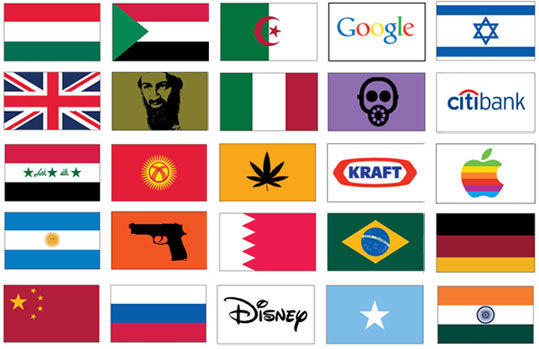Meet the new power players
EVEN BEFORE WE knew who had committed the attacks of Sept. 11, 2001, it was clear that the event would be transformative, startling Americans into reconsidering how they understood matters from religion and culture to war and civil liberties.
For the nation’s foreign policy brain trust, it announced one thing in particular: A new species of power finally had come of age. The force behind the 9/11 attacks wasn’t an enemy nation but a small band of resourceful zealots scattered around the world. Al Qaeda was what experts call, for lack of a more elegant term, a “non-state actor” – one of a new species of powers that operate outside the umbrella of traditional governments. These powers run the gamut from terrorist cells to Google, from globe-spanning charities to oil conglomerates. As much as anything, the 9/11 strikes illustrated the profound influence that non-state actors could have on world affairs.
You might think that the sudden demonstration of the radical power of a non-state actor would have triggered an equally bold reaction at the highest levels of policy thinking: a coherent shift in grand strategy, in America’s thinking about how it should contend with the wider world, on the scale of the one that developed after World War II.
Surprisingly, though, if there is one thing that 9/11 didn’t change, it was this. Instead of a flurry of new thinking at the highest echelons of the foreign policy establishment, the major decisions of the past two administrations have been generated from the same tool kit of foreign policy ideas that have dominated the world for decades. Washington’s strategic debates – between neoconservatives and liberals, between interventionists and realists – are essentially struggles among ideas and strategies held over from the era when nation-states were the only significant actors on the world stage. As ideas, none of them were designed to deal effectively with a world in which states are grappling with powerful entities that operate beyond their control.
“Great power relations, war, diplomacy, we know how to do that,” says Stephen Krasner, a Stanford University international relations specialist who ran the policy planning department in George W. Bush’s State Department from 2005 to 2007. “We don’t know how to deal with these tricky non-state questions.”
A look at the major foreign crises of the last two decades, the ones that have demanded the most attention, money, and lives from America, reveals that virtually all of them were provoked not by some hostile scheming government in Moscow or Beijing, but by an entity that would have been beneath the radar of a classic global strategist. In the 1990s, warlords in Somalia and Bosnia ripped apart their regions while bedeviling old-line powers like the United States, Britain, and NATO. On the eve of the millennium, the United States struggled to grapple with the fallout from a failed hedge fund, Long-Term Capital Management, and Argentina’s economic collapse – financial crises whose political repercussions outstripped those of many wars. The Sept. 11 attacks only made obvious a change that had already been apparent to many.
Ten years later, we are still waiting for the intellectual response to that change. And already we can see the costs of its absence. The United States responded to the 9/11 attacks with strategies that made sense in the old days of state-vs-state conflict, deploying the world’s most powerful armed forces and spending more than $1 trillion trying to subdue bands of simply trained and lightly armed men in Afghanistan and Iraq. Many strategists see a rising China as the next major threat in a traditional sense, but even China’s challenge to American interests is largely taking place outside traditional state channels: in contests for oil concessions, and struggles for high-tech revenue, cultural influence, and intellectual property. The cost of getting these types of struggles wrong can, in the long term, be even greater than a runaway war.



An excellent column in today’s Globe. THANK YOU. Yours is the kind of broad-view, long-range thinking we need so much of. I look forward to reading “A Privilege to Die.”
I just finished Thomas Friedman’s “The Lexus and the Olive Tree,” which also uses this breadth of thought. However, he barely mentions a key factor in the global economy: a growing, thriving middle class of producers, earners and consumers across all participating nations.
I see a strong, growing, thriving middle class as key to the success of both the global economy and democracy as a form of government. Equality of economic opportunity is essential.
My web site, above, focuses on this concept, but it is very much a spare-time activity for me, and the section on “Erosion of the Middle Class” is still in progress. However, two articles on the impact of the US health care system on middle-class well-being are complete.
If you had the time, your feedback would be most welcome.
Well done.
I have never seen it put so succinctly that the shoestring-budget, devastating attack of 9/11 cost the U.S. billions in inconclusive military retaliation.